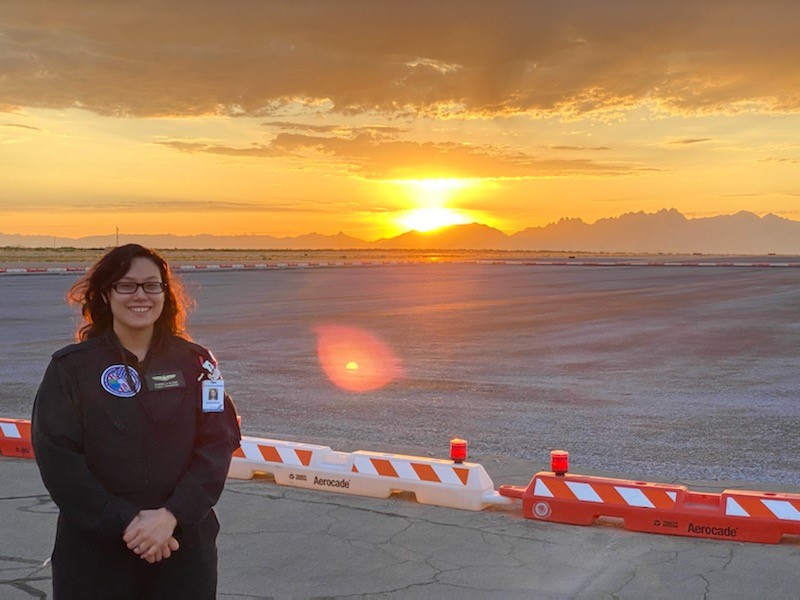We love our medical staff! To celebrate our flight nurses and medics and all the amazing work they do, we’re sitting them down for a question-and-answer session. For this week’s medic Q&A, meet flight paramedic Gabriella Bloise!
CSI Aviation: Why did you become a flight nurse or flight paramedic and how is it different from working on the ground or in a hospital?
Gabriella Bloise: I wanted to become a flight paramedic because it was going to be something completely different than what I was doing. It would allow me to advance in my career and to continue learning, which is something I really enjoy. It is very different than what I used to do on the ground. I was a ground paramedic with Albuquerque ambulance—the busiest 911 system in our state—and there are huge differences between ground and air. For one, we don’t respond to 911 calls with flight. With the [ground] ambulance we did. With flight, I am allowed to use pretty much all of my national registry scope and some more skills allowed through the state and other states. With ground, our scope was limited, but at the same time, it was also the biggest scope in the state. With flight, I’m able to use ventilators in order to help with airway management, and out in the field I had to back the patient the entire way to the hospital. I’m allowed to use so many different medications for so many different disease processes or interventions. Down on the ground I was very limited. Coming to flight has allowed me to go beyond a normal paramedic scope and that’s what I love the most.

CSI: What have you gained from working at CSI?
GB: From working at CSI Aviation, I have gained a lot of things. For one, I’ve gained a new family (not just medical personnel, but pilots and other amazing people that work here). I have widened my scope [of practice] and got out of my “comfortable” shell. In just the little time I’ve been with this company, I have been able to advance my career and perform many tasks that were not available to me with other companies.
CSI: What do you find most rewarding and/or most challenging in your role as a flight nurse or flight paramedic?
GB: Being a healthcare professional, I would say the most rewarding thing about this job is to say that I helped someone. When it comes to critical care and flight, a lot of these calls, I am genuinely getting these people to the best care they can possibly have. The first step [is] us, and that is a reward in its own. The most challenging role as a flight paramedic is remembering that this is a team effort and that you are not alone.
CSI: What’s your favorite medical flight story (or, just your favorite career story!)
GB: I have so many favorite career stories, especially since I spent a lot of my years on ground. But my favorite medical flight story is actually [from when] I wasn’t even working here. Back in December, I had done a flight ride along. This was just to see if I could handle a flight call—to see if I didn’t get too sick and I was able to perform the job—and for me, it went well. The ride was very bumpy…In flight, the patient stated that she has a history of seizures and that she felt as if she was going to have one. Sure enough, shortly after she said that she went into status epilepticus, and that’s when the medicine fun began. [The in-flight medics] administered multiple medications in order to break the seizures and we had to do an emergency divert to Albuquerque, instead of double-eagle to where this patient was originally supposed to go. It was fun, and I know that’s not the right term to use because this is somebody’s medical condition, but it let me see just how quick you had to be in the air.
CSI: What do you wish people knew about your job?
GB: When it comes to paramedicine as a whole, I wish people actually understood what a paramedic was, what a paramedic can do, and appreciate us just as they do other healthcare professionals. I understand that paramedicine is still relatively new when it comes to the medical field. So, for people to really understand what we are, it would take a couple more years for them to define us. I have faith that one day paramedics will be respected as a medical professional, rather than just “an ambulance driver” or a “tech to a nurse.”



